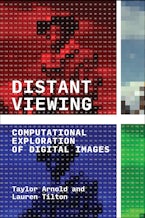Gateways to Knowledge is about change, about suspending old ideas without rejecting them and rethinking the purpose of the university and the library. Proponents of the gateway concept—which ties together these fifteen essays by scholars, librarians, and academic administrators—envision the library as a point of access to other library and research resources, and electronically beyond; as a place for teaching; and as a site for services and support where students and faculty can locate and use the information they need in the form in which they need it.
Struggling to define the library of the future, librarians have too often bolted new technology, programs, and services on to existing library functions. These essays focus instead on how information may be packaged and disseminated in a networked environment, as well as on how to think about the nature and qualities of electronic information.
There are discussions of specific gateway projects such as the Mann Library at Cornell, the new gateway library at the University of Southern California, the Information Arcade at the University of Iowa, and of "Who Built America?"—one of the most interesting new educational software packages currently available.
Contributors
Anthony Appiah (Harvard University), Steve Brier (City University of New York), Richard DeGennaro (Harvard College), Lawrence Dowler (Harvard College), Billy E. Frye (Emory University), Paul Ginsparg (Los Alamos National Laboratory), Richard Lanham (University of California, Los Angeles), Anita Lowry (University of Iowa), Peter Lyman (University of California at Berkeley), Patrick Manning (Northeastern University), Jan Olsen (Cornell University), Karen Price (Harvard University), Richard Rockwell (University of Michigan), Roy Rosenzweig (George Mason University), John Unsworth (University of Virginia), James Wilkinson (Harvard University)












